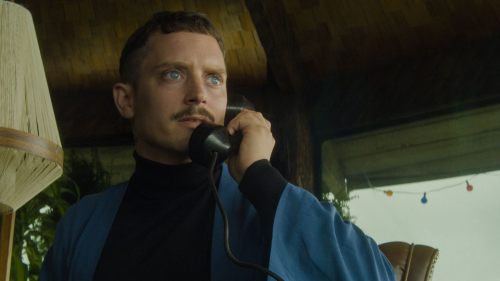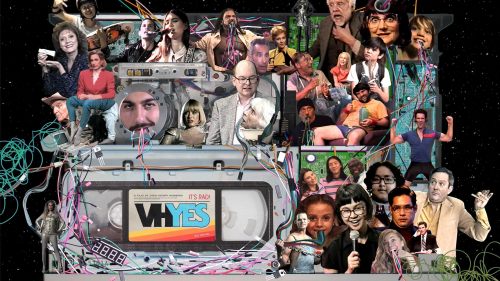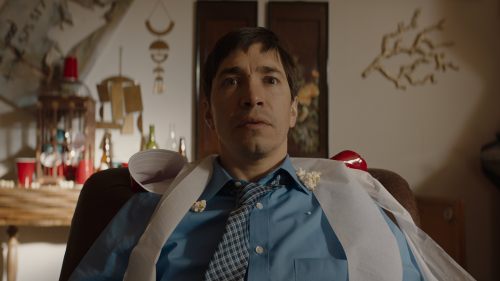Fantastic Fest Review: FERAL Uses Found Footage In The Name Of The Father
It's a well-established truism that found footage horror is largely played out. Often founded on contrived excuses for characters to carry around a camera for ninety minutes, found footage has become the hallmark of cheap productions without the funding – or often the talent – to do anything more creative than shakily keep whatever we're supposed to fear just out of frame.
Feral, however, is a bit different in how it approaches the form. Rather than treat the ostensibly true events of its amateur footage as the inexplicably found remains of a supernatural tragedy, director Andrés Kaiser frames the footage as part of an investigative documentary, placing the found footage into a broader context through talking head interviews and historical research. The resulting film is a shockingly convincing faux documentary – one that I admittedly had to research afterward to reassure myself that it was, in fact, fictional – but what Kaiser seeks to demonstrate about humanity is no less powerful for his narrative's fabrication.
The film delves into the history of one Juan Felipe de Jesús González (Hector Illanes), a man who discovers a feral boy (Farid Escalante Correa) in the wilderness of Oaxaca, Mexico in 1987, and resolves to raise the developmentally stunted pre-teen into a functional member of society. During his time isolated with the boy in the wilderness, Juan Felipe starts to record video diaries on Betamax tapes, chronicling the boy's progress as he begins to find what we would recognize as humanity. Juan Felipe eventually discovers two more children chained up in a cave, bringing them home to form an ersatz family that gradually reveals itself to be less civilized than he would believe.
What at first starts as an almost methodical study of the feral children's socialization quickly takes on a more disturbing bent as it becomes clear that the children are not the monsters of this horror story. What motivates Juan Felipe isn't scientific curiosity or benevolent altruism. Rather, Juan Felipe views himself as a sort of Catholic missionary, raising these children so that they may be recruited into God's graces, and that distinct difference in motivation causes the situation to degrade rapidly. As Juan Felipe becomes more frustrated with the children he claims to love, he displays a savagery more maliciously violent than theirs, and yet he believes that punishment and discipline are the mechanisms that inform civilization and, consequently, God's will. This functions as a harrowing deconstruction of what exactly religion means as a baseline of cultural development, raising the question of how far removed humanity actually is from its animalistic roots.
This only comes into tighter focus in the investigative interviews that frame Juan Felipe's human neighbors as cloistered, superstitious, and wary of outside inspection. The town isn't populated with horror movie harbingers, but by normal people living their lives with their church as the hub that ties them all together. As the fate of Juan Felipe and his wards becomes more apparent, their willful ignorance of Juan Felipe's psychological and practical difficulties makes the townspeople complicit in the tragedy Juan Felipe's experimental family eventually causes. It's a dark condemnation of the harm brought about by viewing faith and community as synonymous concepts, painting Juan Felipe as as much a victim of rejection from his community as he is of his own mental instability.
Feral isn't a horror movie in the conventional sense. There isn't a supernatural element that pushes Juan Felipe and his wards toward destruction, at least not literally. There's only a man, his religious fervor, some children subject to his whims, and a community that rejects them. If there's one thing that Kaiser aims to show us with his disturbingly realistic film, it's that this is all that's necessary for a truly horrifying series of events to occur. And the thought that humanity is the thing worth fearing, whether feral or civilized, is perhaps the most terrifying notion of all.



